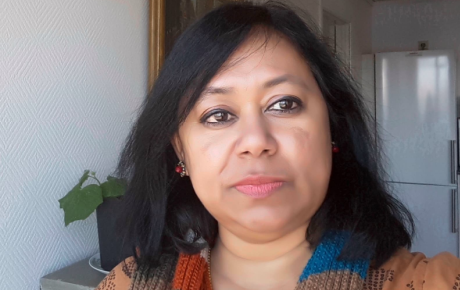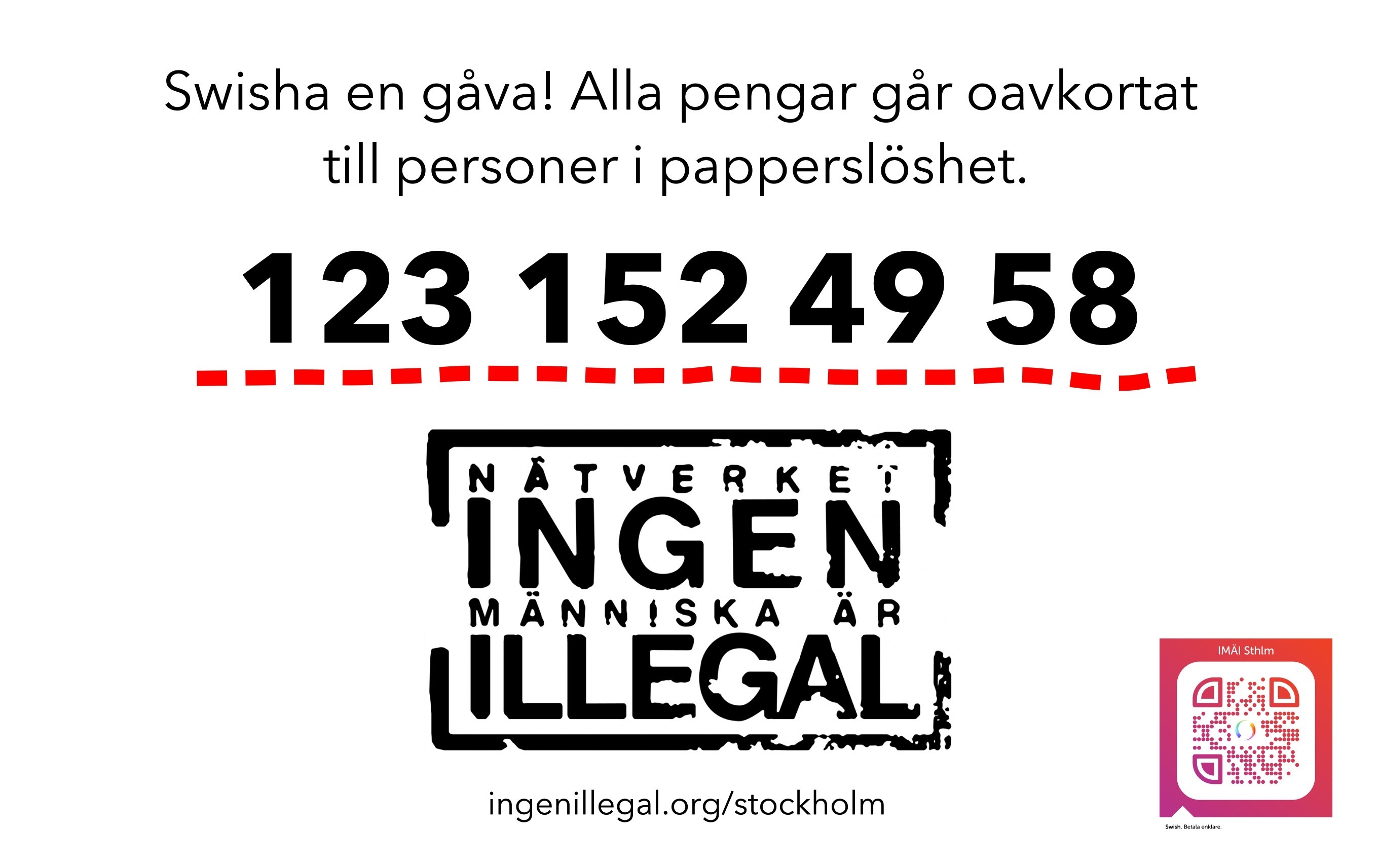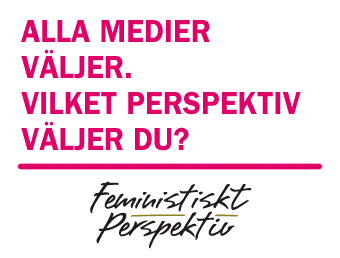
Supriti Dhar.
Bild: Privat
Cries that go unheard
2020-10-16 | Supriti Dhar

INTERNATIONAL
410 of the Bangladeshi women who in recent years traveled to work as housekeepers for families in other countries have returned as corpses. Analysis by Supriti Dhar.
While Sri Lanka, Philippines, Indonesia and some other countries have stopped sending their women to the Gulf countries as ”housekeeper”, Bangladesh still turns a blind eye to what is happening. As a result, millions of Bangladeshi women are facing violence. According to the Expatriate Welfare Desk at the airport, 410 women who went to work in different countries in the four years from 2016 to 2019 have returned home as corpses.
Recently a 14-year-old girl, Kulsum’s corpse reached to Dhaka. She was brutally tortured, her legs and waist were broken, she could not walk. One of her eyes was severely damaged by her employer and she ended up in Riyad hospital. There is no protest neither in mainstream media, nor in social media, because Kulsum belongs to a poor family, because her life does not mean anything, because she is a woman.
A few months ago, a video was viral in social media which was secretly filmed by a Bangladeshi housemaid employed in Saudi Arabia, where one young woman was hiding in the toilet, crying for help and begging to be brought back home.
”I might not live any longer; I think I am about to die, please keep me alive, take me back to Bangladesh quickly”, she said in ”Bangla”.
In the video she stated that her owners locked her up in a room for 15 days and barely gave her any food. They burned her arms with boiling hot oil and tied her down.
28-year-old Rehana Akhter, a mother of three minor children, went to Saudi Arab as a ”housekeeper”. Her husband sent her with the hope to get better earnings and ensure a better future for their children and family. Unfortunately, she ended up as sex slave who was brutally raped but could escape from there and returned to Bangladesh. She thought she saved her life from foreign rapists, but the life emerged as crueler. She was denied by her husband, in laws, parents, even children, they did not accept her like before because she was raped, so she became ”untouched” for the society. She was bound to take refuge in one of the organizations.
There are thousands of such stories where women describe the cruelty they faced. A young girl was raped and tortured by an employer and his son simultaneously and the Saudi woman who lived in that house and is a wife and mother of the oppressors, helped to do this. I had opportunity to listen those women’s story in my professional life, and more and more I heard them I became sick.
To understand this situation, you all have to know the socio-economical position of a woman. A large number of women from Bangladesh leave their families behind and travel thousands of miles away from home with the hope to get better earnings and ensure a better future for their children and family. While many women realize their expected hope, others face a different reality – suffering through insurmountable cruelty and mistreatment by their foreign employers and find no one to turn to for immediate rescue.
But the positive side is that workers send home billions of dollars in remittances, which in the best cases help to pull their families out of poverty, fund the building of homes, finance education, and pay for medical care while contributing to the economy of their host country. In the worst cases, workers lose their lives, or are subject to forced labor and trafficking. Most migrants’ experiences fall somewhere in between.
Nuri, another Bangladeshi woman who was tortured and worked without pay in the home of a Saudi family for two months told Thomson Reuters Foundation, ”My ’Dalal’ beat me up and broke my leg when I filed a case against him. I was in the hospital for 15 days”.
She also alleged that she was sexually assaulted by her employers. ”They made me go from one home to another. In the first home, they tortured me and hit me repeatedly and then took me to another one where I experienced the same”. She was denied any medical treatment by her former employer.
Nuri held her ground strongly to find justice and is determined about fighting the case in the court – ”After he beat me up, I am not turning back”.
About 700 000 Bangladeshis find jobs overseas every year which makes the country one of the world’s top countries biggest labour-exporting countries. But recruitment is largely carried out by unofficial brokers, which opens the door to trafficking and exploitation.
About one in ten migrants are women. Many are uneducated and poor, and they often receive false promises of salaries of about 20 000 taka ($237) a month by middlemen and rarely get job contracts. Thousands of female migrant workers come home empty-handed each year.
The surge of migrant workers into the Middle East began in the early 1970s, when increased petroleum production brought with Currently, Saudi Arabia is the largest recipient of migrant domestic labor, with the UAE close behind with over 75 percent of its population classified as migrant workers.
Lacking documentation and in a foreign country, migrant domestic workers find themselves under the charge of their female employer. Because Middle Eastern households often consist of extended families, work can be arduous. It oftentimes includes tasks such as cleaning, washing, cooking, tailoring, and taking care of children and the aged. Working hours are long, between eleven and twenty hours a day, with the maid subject to work both day and night at the whim of her employers. Since foreign maids can easily influence the upbringing of the children, cultural conflicts are numerous, and are complicated further by the potential for sexual relationships between the maid and the husband or adult male relatives. Racial discrimination and symbolic forms of prejudice against the migrant worker are also common.
Domestic workers are often denied freedom of movement and are either locked inside or forbidden to leave the home without permission. Violence against maids includes physical attacks ranging from rape to slapping; other forms of violence include overwork, including forcibly working in more than one household and the refusal of days off, non-payment of wages or a reduced salary. Maids also often experience poor living conditions, such as lack of food and privacy. Physical violence is usually perpetrated by the female employer, or madam of the household. Most workers have reported suffering from more than one type of violence during the course of their employment, and many are so traumatized by the experience that it even negatively affects their ability to reintegrate into society upon returning home.
The recruiting agencies sending the domestic servants to the Persian Gulf are well aware of the abuses these women face, as are the labor-sending countries themselves. Despite this knowledge, countries such as the Bangladesh, with growing populations and economic instability, continue to send female domestic workers abroad because the financial benefit of remittances cannot be ignored.
Bangladesh, a top to bottom patriarchal country, pushed our poor women to an uncertain future, from where they can return or not, it’s not their headache. They need only remittance. Women’s life is so cheap, so uncertain, so vulnerable that anyone can play with it. Their cry does not reach to anyone, even not to humanitarian society or organizations.
Violence against Bangladeshi women workers is still ongoing at an alarming rate; Bangladesh should ensure that it provides the highest protection for its workers abroad, including by increasing oversight over its own recruiting agents, offering protection for its workers in host countries, and aiding workers in distress.
#No_More_Sex_Slave_To_Middle_EastKommentarer
Du måste vara inloggad för att kunna lämna en kommentar.
























MEST KOMMENTERAT
SENASTE KOMMENTARERNA
Om Var Grupp 8 en feministisk organisation?
Om #bildskolan 21: Att äta Den Andre
Om #bildskolan 21: Att äta Den Andre
Om Porr handlar om betalda övergrepp
Om Nobels fredspris till kampanj för att avskaffa kärnvapen
Om Feministiskt perspektiv öppnar arkivet och startar på nytt!
Om Rödgrönt ointresse för fred och nedrustning borde oroa många
Om Var inte målet att vi skulle jobba mindre?
Om Feministiskt perspektiv öppnar arkivet och startar på nytt!
Om Feministiskt perspektiv öppnar arkivet och startar på nytt!
MEST LÄST